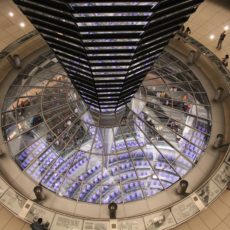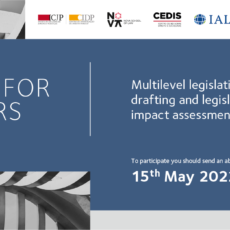
Legislative drafting is guided by principles and tradition, yet another dimension is rapidly gaining significance. Legislatures, lawmakers and legal professionals gradually discover legal informatics as a scientific field capable of producing tools and services that have the potential to offer substantial assistance in the lawmaking process. With a plethora of software tools and data sources already available for testing and use, what about training of the relevant stakeholders and, particularly, of the public administrators, who are going to participate or support the law making process in its digital dimension?
The Hellenic National School of Public Administration and Local Government, which is integral part of the National Center for Public Administration & Local Government, is among the first at a global scale to identify the need to educate the future generations of public officials accordingly. In this regard, a state-of-the-art legislative drafting laboratory was developed and taught to students of the recently concluded educational series.
IAL member Dr. Fotis Fitsilis, member of the Scientific Service in the Hellenic Parliament, was assigned the task to design and lead the laboratory as well as to draft the related teaching material. Teaching included, among others, introduction to legislative drafting and discussion of legal informatics principles. A series of case studies displaying such systems at the European Union level and in the US Congress was also presented. The core of the laboratory constituted the analysis of the Legislation Editing Open Software (LEOS), an open source software tool that was built and is supported by EU organs to advance interoperability and openness of legislation across the Union.
Due to the pandemic situation, the legal tech lab was swiftly transformed from envisaged cooperative action to an online demonstration of the tool’s installation, basic configuration and standard functionality for educational purposes. Pros and cons of a potential system operation in the Hellenic public administration were discussed and student feedback was recorded and evaluated.
To build on the Lab’s successful implementation, the National Center of Public Administration and Local Government is planning a series of follow-up activities to disseminate the results among public administration entities and participants to the legislative drafting process.





